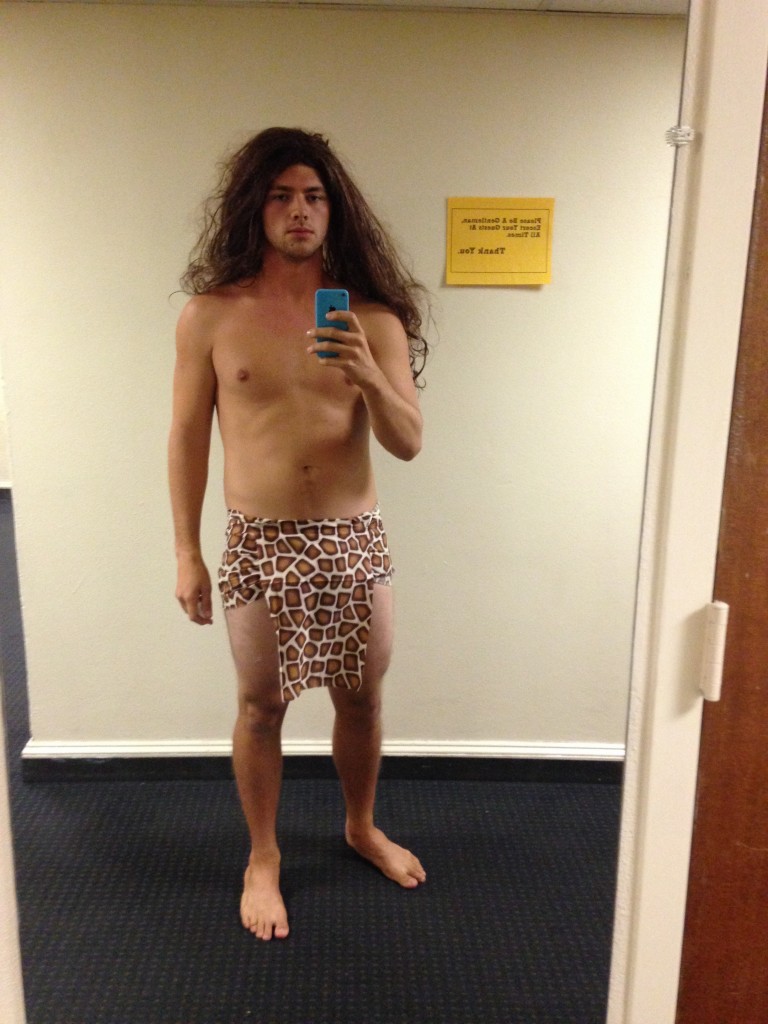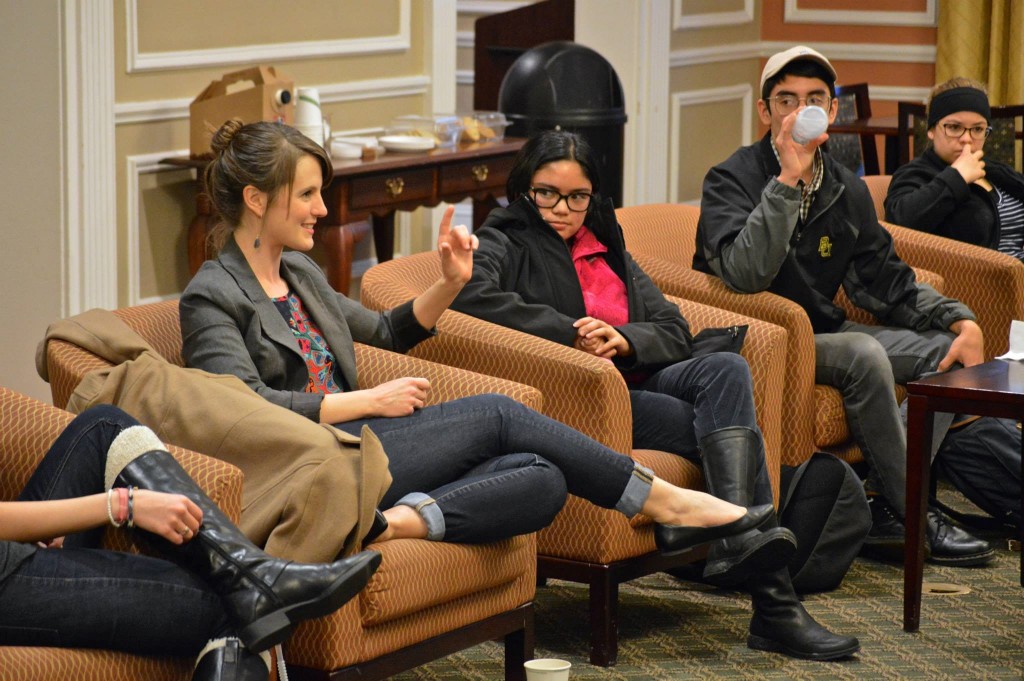This week, I sat down with my fellow BIC sophomore Jared DeVries for an impromptu chat about Baylor, life, and his goals for the future. I had Delia—my trusty laptop—and my usual battery of Deep, Soulful Questions© in hand and was anxious to hear what he had to say.
“Indiana Jones,” he said unflinchingly. “If I could have any job, Indiana Jones would be perfect.”
I had to take a quick break to laugh a little over my keyboard as he explained to me animatedly why Raiders of the Lost Ark was the perfect movie (“It’s got everything!”) while slurping his sweet tea from Starbucks (which was good, he said, but not as good as apple juice would have been). The rest of our interview was just as fun and light-hearted, with Jared making it clear that he tries not to take himself too seriously—an attitude we could all learn from.
“Do you have any quirky habits that you want to tell us about?” I asked after we had agreed that the Indiana Jones franchise was epic, although maybe Harrison Ford was getting a little old to take on the Nazi menace single-handed.
“I laugh a lot!” he said, surprising no one. “I think it’s one of the defining characteristics of who I am. Sometimes I laugh because I think something’s funny, but then other times if I don’t hear you, I laugh anyway, so it’s not awkward.” Maybe ironically, we both laughed over that, and Jared shrugged a little. “I like to laugh,” he said simply. “It’s fun.”
Goodness knows that we BIC-ers need all the fun we can get, and even amidst the fire and frenzy of school, Jared knows how to keep his spirits up. “Freshman year, I was in Dr. Hibbs’ class for World Cultures I,” he said when I asked him about his favorite Baylor memory. “And we got to dress up for extra credit one day, and I was Enkidu!” He had bought a long, hippie-style wig from Walmart (“The hair was everywhere,” he said) and had worn a cheetah-print loincloth, and not much else. “At first I thought it might be too risqué, but then I just decided to do it!” he said. “And then I got Chipotle afterwards.”

“Where do you see yourself in five years?” I asked him. “What would you like to be doing?”
“Hopefully I’ll have graduated,” he said, laughing. Other than the completion of his undergrad career, Jared hopes to be in some kind of a position to pursue history and teaching—an assistant-professorship, perhaps, like a real-life Indiana Jones. “I love learning, and teaching, and finding out how things work,” he said.
“How about in fifty years?”
In fifty years, Jared will be seventy, and hopefully living a well-established life somewhere with a family of his own and Washington, his beloved bonsai tree. “He’s been with me two years now, and he’s doing great,” he said about Washington. “He wants to travel more, and I keep him on my windowsill so that he can see outside.” Jared and Washington seem to like the simple life, and in fifty years they would be perfectly content to “just enjoy life and engage in what it has to offer.” That sounds like a pretty sweet deal to me.
Of everyone I have met in the BIC (or even in all of Baylor), I think that Jared is one of the only people I have yet spoken to that seems genuinely comfortable with himself—I mean, it takes a lot of gumption to dress up like an ancient Mesopotamian demigod. He sees the value in the small things and is constantly looking for opportunities to improve, even mulling over ways to make life easier for Waco’s citizens while he is out running. If BIC had any part to play in the kind of person that Jared turned out to be, then it is doing something right, and we can sleep tonight knowing that our education is in good hands.
Chelsea Teague is a sophomore BIC student majoring in professional writing.











